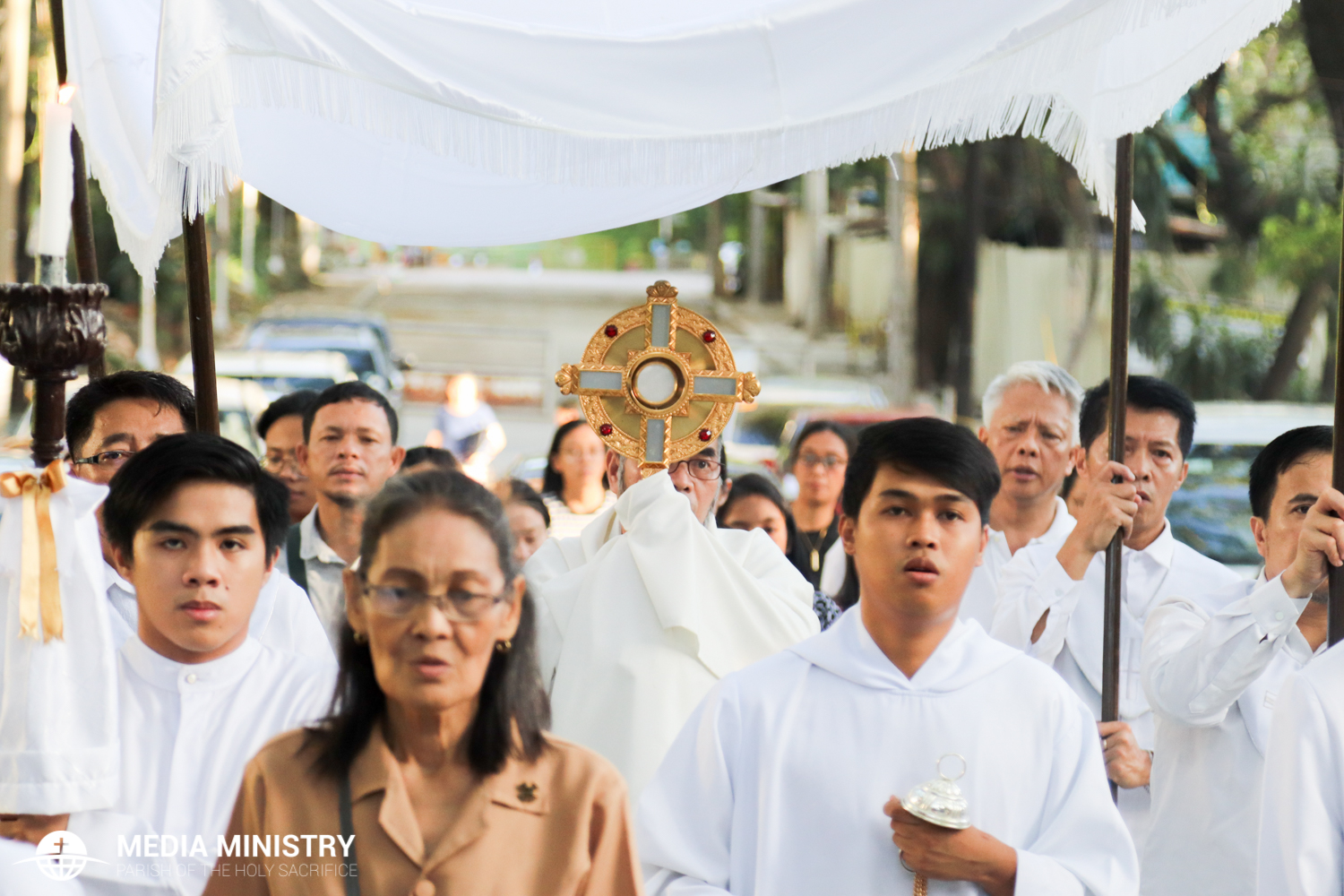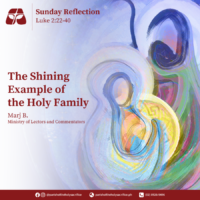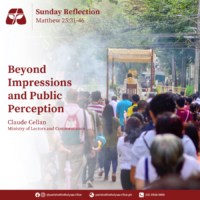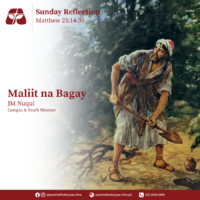A Commitment Unlike Any Other
By Rian Mitchell Piamonte

First Reading: Ex 24:3-8
Second Reading: Heb 9:11-15
Gospel: Mk 14:12-16, 22-26
“I promise to be true to you in good times and in bad, in sickness and in health. I will love you and honor you all the days of my life.” We usually hear this vow during the union between a man and a woman who wish to be united by marriage. It entails a promise that as long as one is alive, one will truly love and honor the other. These promises are made to show commitment in a relationship—a mark of mutual understanding and trust in one another. In this great Solemnity of the Body and Blood of our Lord Jesus Christ, we remember this promise of love—a commitment that entails a great sacrifice that we celebrate during the Mass. We also gather and partake into His’ living reminder of the promise of eternal Salvation. In the readings today, we see the theme of the blood as a covenant towards redemption.
To build the context of this reflection, it is very important for us to talk about the symbolism of the blood in the old Israel. In the Old Testament, blood was not a symbol of violence; rather, it was a sacred symbol of life. As Moses renewed our old covenant with God, the blood was sprinkled on the altar, representing God, and on the people. (Ex 24:6-8) This expresses the life-giving relationship with God that was to become the calling of Israel. In His words in the last supper, Jesus gave a new meaning to this promise by repeating the words of Moses, ‘This is the blood of the covenant.’ (Mk 14:24)
For many people, the Blood is associated only with Christ’s suffering. However, the message of the Scriptures invites us to widen our perspective. St Paul’s message in his letter to the Corinthians was ‘whenever you eat this bread and drink this cup, you are proclaiming the Lord’s death until He comes.’ (1 Cor 12:6) The Letter to the Hebrews echoes this message. In Jesus’ death and resurrection, He gives the world its great act of true worship. He is the high priest who offers himself as a perfect sacrifice (cf. Heb 9:11-12); while His life-giving blood enables us to worship the living God (Heb 9:14). He fulfills the old Covenant by Himself being the mediator of the new Covenant (Heb 9:15). He brings us beyond the ritual made in Mount Sinai in Exodus— into the very presence of God. Through the sacrifice of His Blood, He ratified the promise of a new wine in the Kingdom of God, of which today’s Gospel reading ends. The Church now remembers this sacrifice in the Holy Eucharist, and we believe that the Holy Eucharist gives us a foretaste to the Kingdom of God.
Today’s readings invites us to reflect upon a theme of great importance for the renewal of the Church’s liturgy. The Eucharist is far more than Christ’s ‘real presence’ among us. It is not a kind of substitute for the fact that he is no longer among us in this earthly life. In its fullness, the Eucharist is an action to the promise of eternal life: a commitment to better foster our loving relationship with God, and a covenant that is the central action of the Church’s life. It is because the presence of Christ himself and His sacrifice on the Cross is a perfect act of worship. In giving Himself to us as food and drink, may we always make His sacrifice our nourishment for eternal life.
Dear Lady, the sacrifice of your son has redeemed the world. Help us to partake in the sufferings of your son for our salvation. May we always be reminded of His sacrifice in the Holy Eucharist, and keep the new covenant living in our hearts and in our actions.
Lead us always to your Son. Amen.
Rian Mitchell Piamonte is a writer of the Parish of the Holy Sacrifice Media Ministry. He is currently taking up BA Anthropology in the University of the Philippines.


